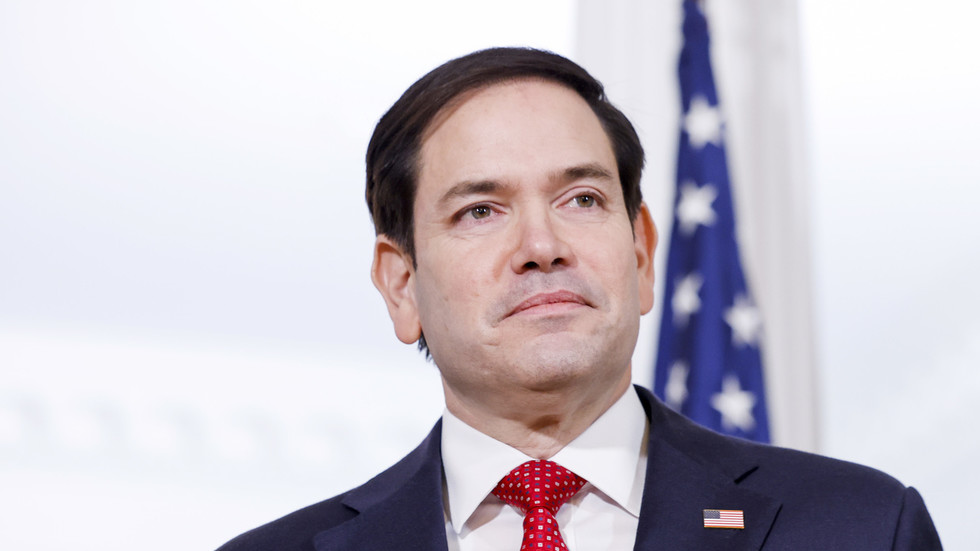The End of an Era? Rubio Warns Against NATO Subsidization
In a world increasingly fraught with geopolitical tensions, the debate surrounding the North Atlantic Treaty Organization (NATO) and its funding model is more relevant than ever. Senator Marco Rubio has recently raised significant concerns regarding the sustainability of U.S. financial support for NATO. His comments suggest that a reevaluation of the United States’ defense strategy may be on the horizon, which could have profound implications for international alliances and security dynamics.
Understanding Rubio’s Position on NATO Subsidization
Senator Rubio has positioned himself as a critical voice regarding what he perceives as an imbalance in NATO’s funding structure. He argues that the United States bears a disproportionate burden in funding the alliance, which was initially formed as a collective defense mechanism against the Soviet threat in the mid-20th century. In light of contemporary challenges, Rubio’s warnings highlight a growing sentiment among some U.S. lawmakers that the current model may no longer be viable.
Rubio’s concerns can be summarized in several key points:
- Financial Burden: The U.S. contributes approximately 70% of NATO’s total defense spending, a figure that many argue is unsustainable, especially in an era where domestic challenges are mounting.
- Shared Responsibility: Rubio emphasizes the need for NATO member nations to increase their defense spending to meet the alliance’s target of 2% of GDP. He believes that a lack of financial commitment from other members undermines collective security.
- Strategic Shift: The senator suggests that a shift in U.S. defense strategy may be necessary to ensure that American resources are not disproportionately allocated to global commitments that do not align with national interests.
Global Context: Rising Tensions and Changing Alliances
The context of Rubio’s warnings cannot be overlooked. As global tensions rise, particularly with nations like Russia and China asserting their influence, the dynamics of international alliances are evolving. The ongoing war in Ukraine, China’s assertiveness in the South China Sea, and other regional conflicts highlight the complex security landscape the U.S. must navigate.
In this climate, the implications of a potential shift away from NATO subsidization could be far-reaching:
- Impact on European Security: A reduction in U.S. financial support for NATO could lead to increased insecurity in Europe, particularly if member states do not step up their military spending. This might embolden adversaries like Russia.
- Reshaping Alliances: Countries may be forced to reconsider their defense strategies and alliances. Some nations could seek to develop independent military capabilities, potentially leading to a fragmented security environment.
- Influence of Emerging Powers: A weakened NATO could provide an opportunity for emerging powers to assert their influence in global politics, leading to new geopolitical alignments.
Analyzing NATO’s Current Funding Model
The NATO funding model has always been based on collective defense and mutual responsibility. However, the current geopolitical landscape has prompted calls for a reassessment of this model:
- Equity in Contributions: Many NATO members fall short of the 2% GDP defense spending guideline, leading to frustrations among U.S. lawmakers. Rubio’s call for equitable contributions could foster greater accountability among member states.
- Questioning the Necessity of NATO: As some lawmakers question NATO’s relevance in a post-Cold War world, discussions emerge about whether the alliance remains the best framework for addressing contemporary security challenges.
- Alternative Security Frameworks: The possibility of alternative security arrangements or coalitions may arise if NATO’s model is deemed outdated. These arrangements could focus on specific regional threats rather than a broad, collective defense model.
The Domestic Implications of NATO Subsidization Concerns
Rubio’s warnings also resonate within the domestic political landscape. As public attention increasingly turns toward domestic issues such as healthcare, infrastructure, and economic recovery, the justification for continued high levels of military spending abroad is being scrutinized.
Key domestic implications include:
- Political Landscape: The growing debate over NATO funding could shift political alliances. Lawmakers who advocate for prioritizing domestic spending may gain traction, leading to a reevaluation of U.S. foreign policy.
- Public Opinion: As citizens face economic challenges, there may be a growing demand for transparency and accountability in foreign spending, especially regarding military commitments overseas.
- Future Defense Spending: Rubio’s position may influence future appropriations for defense, potentially redirecting funds toward domestic initiatives rather than foreign military engagements.
Potential Path Forward: A Balanced Approach
While Rubio’s concerns about NATO subsidization raise valid points, a balanced approach may be necessary to navigate these complexities. Here are some potential pathways:
- Encouraging Member Investment: The U.S. could take a proactive role in encouraging NATO allies to meet the 2% GDP guideline, fostering a sense of shared responsibility.
- Enhancing Diplomatic Efforts: Strengthening diplomatic channels could help address security concerns without solely relying on military spending.
- Evaluating Military Commitments: A thorough review of U.S. military commitments and alliances could ensure that resources are allocated effectively and align with national interests.
Conclusion: A New Chapter in International Security?
As Senator Marco Rubio warns against NATO subsidization, the conversation surrounding U.S. involvement in the alliance is evolving. The implications of shifting financial responsibilities could reshape international alliances and security dynamics. While the challenges are significant, they also present opportunities for reevaluation and potential reform of NATO’s funding model.
Ultimately, the decisions made in the coming years could define America’s role on the global stage. By balancing domestic priorities with international commitments, the U.S. can navigate the complexities of modern geopolitics while maintaining its leadership role in global security. The end of an era may be on the horizon, but it could also usher in a new beginning for international cooperation and collective defense.
See more BBC Express News

